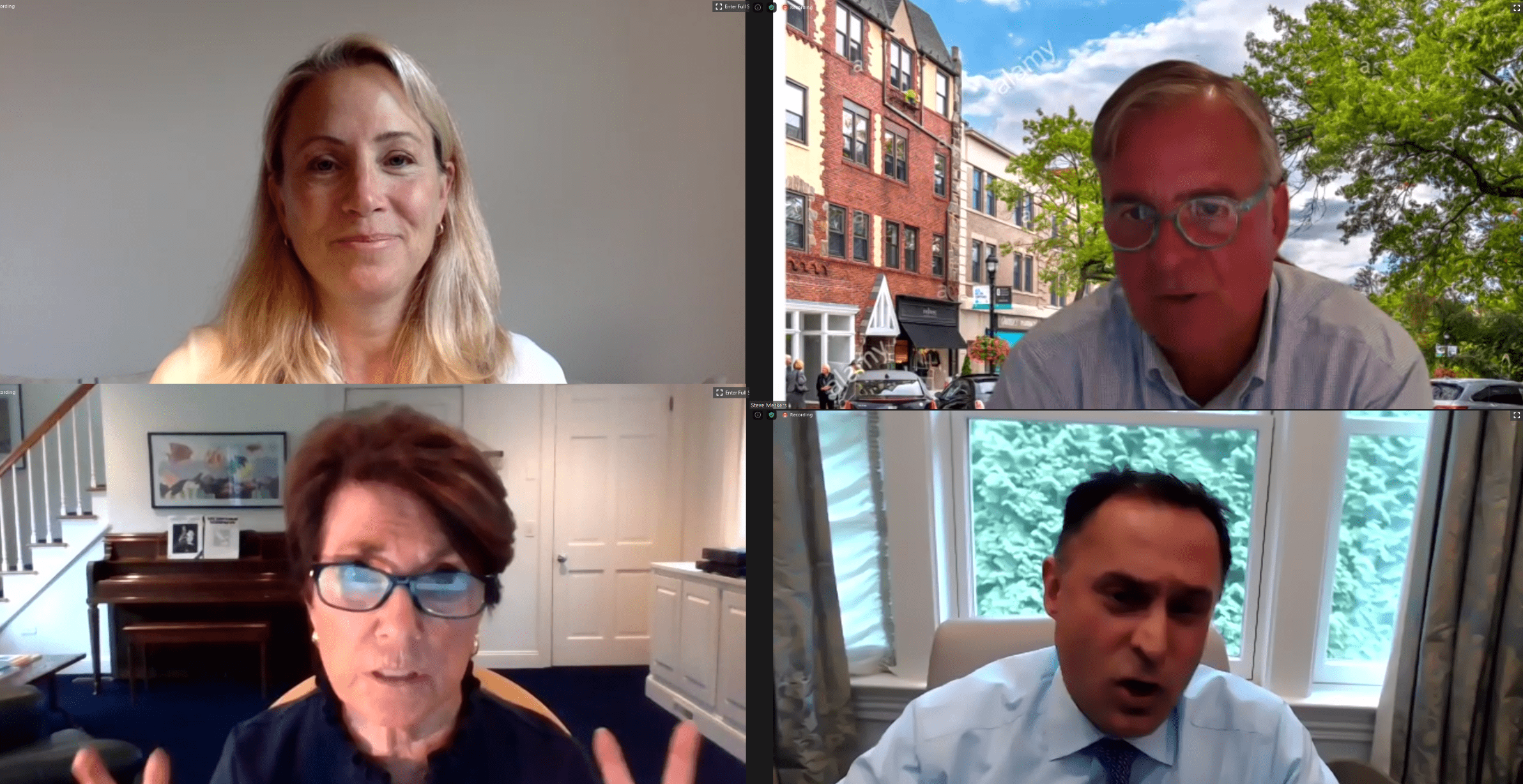
By Foster Steinbeck

State Senator Alex Kassar (D-36), House District Rep. Stephen Meskers (D-150), District Rep. Harry Arora (R-151) and District Rep. Livvy Floren (R-149) participated in the League of Women Voters Greenwich’s annual legislators conversation to discuss the issues facing the state government and their legislative efforts before the legislative session was cut short due to the COVID-19 pandemic.
The conversation, while traditionally held as a picnic for over the past 10 years, was hosted via a Zoom call on Wednesday due to COVID-19 concerns.
“I appreciate all of you for attending and listening to this. Engaging the public in a full understanding of what their government does is an important part of the mission of the League of Women Voters,” LWVG President Sandy Waters said to the gathered audience.
The moderators asked the legislators about potential solutions to the state’s unfunded pension liabilities. The state’s pension system is underfunded, as it still is paying off assets from decades ago, forcing the state to channel more money to fulfilling its pension payments, leaving less money to fund other projects and initiatives.
Floren, Arora and Meskers stressed the need to negotiate with unions to have more money from state employees’ paychecks fund the pension plans.
Kassar said she introduced two bills to help address the “crisis,” a bill outlining a constitutional amendment which would require the state to fully fund its pensions plans and a bill to shift the state’s pension plan to a shared-risk plan.
Arora was critical of Kassar’s bill which would fully fund the state’s pension plan, saying the solution would hinder the state’s economic growth and that the only way out of the problem is fostering such growth.
“I don’t think anyone that’s sitting at this table today is happy in the situation we’ve inherited, and I think we’re all going to be working to solve it,” Meskers said.
Prompted by the moderators, the legislators all agreed about the necessity of mailing applications for absentee ballots to all eligible voters for the Nov. 3 election — due to COVID-19 concerns.
In order to mail the applications, the state legislature will vote to expand the statute of illness — an accepted reason to vote by absentee ballot as defined by the state’s election law — to encompass pandemics.
However, Arora said he did not support mailing out applications for absentee ballots for the upcoming primary elections this August, which includes the primary for the presidential election. Arora said it’s a waste to mail out the applications in light of the low voter turnout in primary elections, but pointed out voters could still download the application online.
“I don’t think … there is that much excitement in the primary,” Arora said. “And I still think it’s very important to vote, but why would we waste $5 million mailing absentee forms for a primary which is not relevant.”
The speakers also outlined each of their individual efforts during the past legislative session and efforts to alleviate the impact of the COVID-19 pandemic.
Meskers said he worked closely with Meals on Wheels to ensure food shelters in lower Fairfield County were properly supplied. Meskers said he also worked with the Department of Economic and Community Development to develop the state’s reopening protocols.
Before the five-week legislative session ended abruptly in mid-March, Floren and Meskers worked to pass House Bill 5518, named The Bond Bill. The bill preserves municipal funds, maintains local grants and provides $200 million for infrastructure repairs and improvements through the sale of bonds.
“The bond bill proves that restrained and strategic borrowing is a useful financial tool to help Connecticut prepare for economic recovery and growth,” Floren said.
Arora said he worked on establishing government scholarships for middle-class students to attend in-state higher education institutions. Kassar said she worked to pass Jennifer’s Law, which would expand the state’s current laws to count psychological abuse, isolation and more as forms of abuse in family court.
Near the end of the program, moderators asked the speakers questions that were submitted by the audience to the moderators. The questions briefly touched on funding special education, gun safety laws and other topics.
The League of Women Voters Greenwich honored Floren for her 20 years in office as a “tireless advocate for good government” and her participation in the LWVG. After first being elected in 2000, Floren announced her retirement earlier this year.
In an upcoming special called session, all of the state representatives will convene in the state capitol on the week of June 20 to discuss mailing out applications for absentee ballots and police reform.




